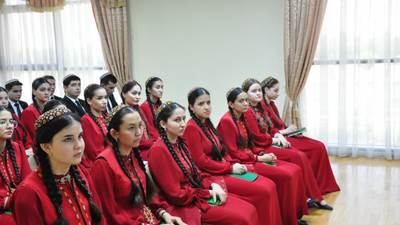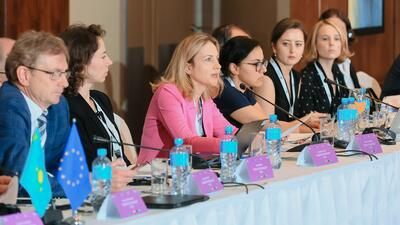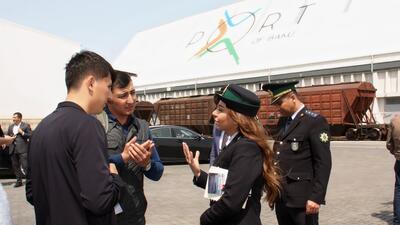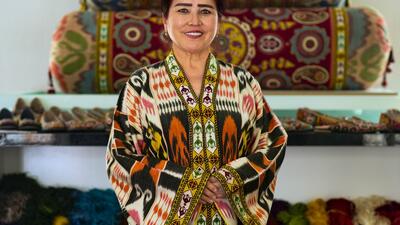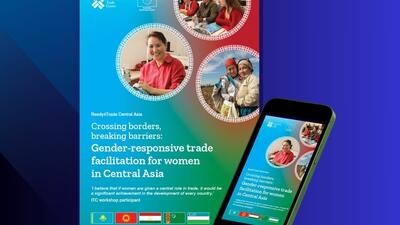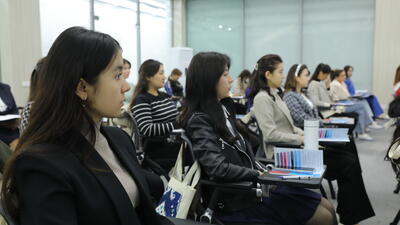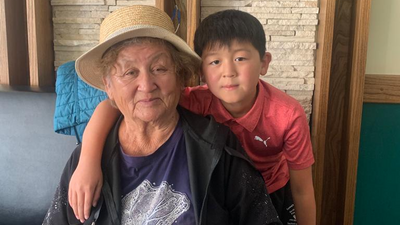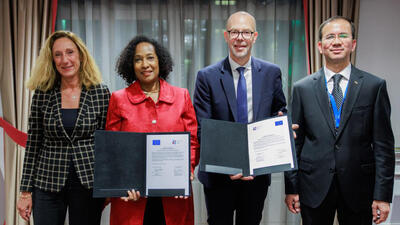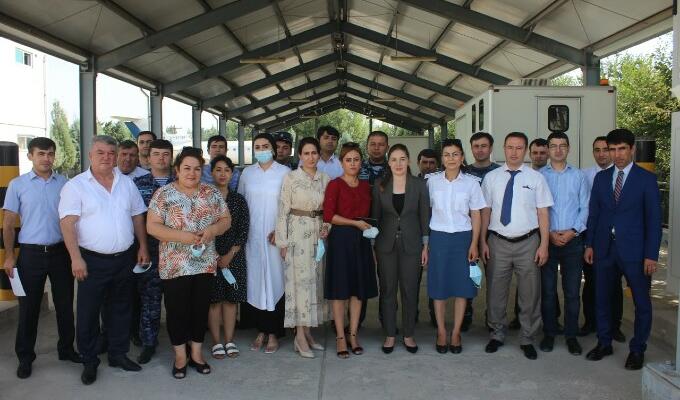
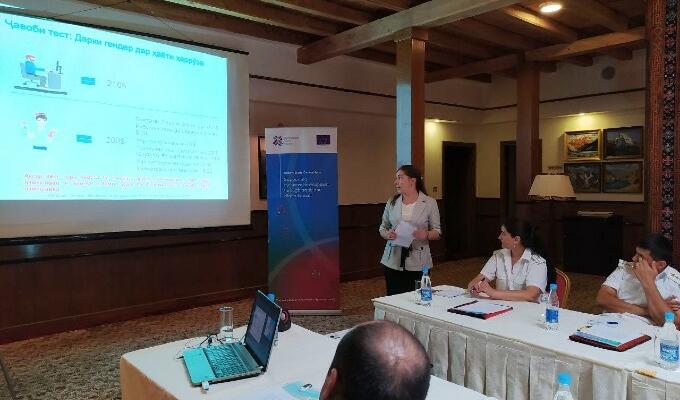
Story: Can trade facilitation be more gender-responsive? Customs officials say yes!
Trade facilitation policy has a long way to go when it comes to addressing gender imbalances – and in cross-border trade, it remains a priority for the economic empowerment of women as workers, consumers and family members. This is where the International Trade Centre steps in to make a difference.
In August, the International Trade Centre’s Ready4Trade Central Asia project, financed by the European Union, completed a series of awareness-raising gender workshops for customs officials in in Tajikistan and Turkmenistan.
“Understanding the gender dimension of cross-border trade and defining the roles that civil servants can play in creating more sustainable trade environments is important”, said Chemen Bayramova, trainer and representative of the State Customs Service of Turkmenistan after attending one of the gender-responsive trade facilitation workshops.
In Tajikistan, the workshops were held across the country, designed for Tajik border officials in close cooperation with the Tajikistan Customs Service and the National Association of Tajik businesswomen. Some 100 local Tajik officials from state agencies participated in the workshops.
“It was especially useful to see the statistics and receive practical advice on how to work with women who are engaged in cross-border trade”, says Nilufar Haidarshoeva, a Tajik customs officer.
Parviz Yusufov, another Tajik customs officer, adds: “After this training, we realized that there are many problems that still need to be conveyed to others in the sector so we can address them jointly and find solutions.”
In Turkmenistan, the workshops were held in the Balkan and Lebap velayats for the State Customs Service of Turkmenistan, with over 45 representatives of customs services attending.
In both countries, the sessions were delivered by local customs experts. Being trained, the participants can now share their knowledge with their colleagues in various customs administrations and other relevant trade agencies.
“These trainings allow trade policymakers, customs officers, and border officials to understand why facilitating trade for women is important, while highlighting some of the constraints that women face when engaging in international trade,” says Alina Fetisova, ITC Trade Facilitation Programme Officer. “The workshops also provide recommendations to enhance women participation in trade and to create conducive border environments through trade facilitation reforms.”
“Addressing women-specific challenges in cross-border trade is essential to achieving women economic empowerment and mainstream gender across the whole policy spectrum”, says Silvia Pietropaolo from the regional delegation of the EU to Central Asia.
The series of trainings followed consultations with governmental entities, business associations and private sector representatives in Central Asia. Findings showed that there is a strong demand for gender-focused activities in trade, especially for cross-border trade.
About the project
The Ready4Trade Central Asia project is a joint initiative of the European Union and the International Trade Centre. Its aim is to contribute to the overall sustainable and inclusive economic development of Central Asia by boosting intra-regional and international trade in the region. Beneficiaries of the Ready4Trade Central Asia project include governments, small and medium-sized enterprises, in particular women-led enterprises, and Business Support Organizations. The project operates in 5 countries: Kazakhstan, Kyrgyzstan, Tajikistan, Turkmenistan and Uzbekistan.
More information: https://www.intracen.org/Ready4Trade





